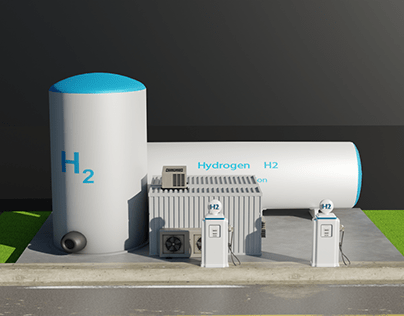Introduction to Hydrogen Executor
In the quest for sustainable and clean energy solutions, the Hydrogen Executor stands out as a promising technology. This innovative system harnesses the power of hydrogen to produce clean energy, offering a potential solution to the world’s growing energy demands and environmental challenges.
What is Hydrogen Executor?
The Hydrogen Executor is an advanced energy system that utilizes hydrogen as a primary fuel source. By converting hydrogen into electricity through a process known as electrolysis, this system provides a reliable and environmentally friendly energy solution. The technology behind the Hydrogen Executor is designed to maximize efficiency while minimizing the environmental impact.
How Does Hydrogen Executor Work?
Electrolysis Process
At the heart of the Hydrogen Executor is the process of electrolysis. This involves splitting water (H₂O) into its constituent elements, hydrogen (H₂) and oxygen (O₂), using an electrical current. The hydrogen produced can then be stored and used as a fuel for various applications.
Energy Conversion
The stored hydrogen is converted into electricity through a fuel cell, which combines hydrogen with oxygen from the air to produce water, heat, and electricity. This process is highly efficient and emits only water vapor as a byproduct, making it a zero-emission energy source.
Storage and Distribution
One of the key features of the Hydrogen Executor is its ability to store hydrogen for later use. This flexibility allows for a consistent energy supply, even during periods of high demand or when renewable energy sources like solar or wind are unavailable.
Benefits of Hydrogen Executor
Environmental Impact
The Hydrogen Executor offers significant environmental benefits. By using hydrogen as a clean fuel, it helps reduce greenhouse gas emissions and dependence on fossil fuels. The only byproduct of the energy conversion process is water vapor, which has no adverse environmental effects.
Efficiency and Reliability
The efficiency of the Hydrogen Executor is another major advantage. The electrolysis and fuel cell processes are designed to maximize energy output while minimizing waste. Additionally, the ability to store hydrogen ensures a reliable energy supply, making it an ideal solution for both grid-scale and off-grid applications.
Versatility
Hydrogen Executor systems can be used in a variety of applications, from powering residential and commercial buildings to providing energy for industrial processes and transportation. This versatility makes it a valuable component of the broader clean energy landscape.
Applications of Hydrogen Executor
Residential and Commercial Energy
The Hydrogen Executor can be integrated into residential and commercial energy systems, providing a clean and efficient power source for homes and businesses. By reducing reliance on traditional power grids, it offers greater energy independence and security.
Industrial Uses
In industrial settings, the Hydrogen Executor can be used to power machinery and processes that require a reliable and high-energy output. Its efficiency and low environmental impact make it an attractive option for industries looking to reduce their carbon footprint.
Transportation
The transportation sector can also benefit from the Hydrogen Executor. Hydrogen fuel cells are already being used in some vehicles, and the Hydrogen Executor technology can help expand the use of hydrogen-powered transportation, reducing emissions and improving fuel efficiency.
Challenges and Solutions
Infrastructure Development
One of the main challenges facing the widespread adoption of hydrogen technology is the lack of infrastructure for hydrogen production, storage, and distribution. Investment in infrastructure development is crucial to support the growth of the Hydrogen Executor and other hydrogen-based systems.
Cost Considerations
The initial cost of Hydrogen Executor systems can be high, but ongoing advancements in technology are helping to reduce these costs. As production scales up and technology improves, the cost of hydrogen energy is expected to become more competitive with traditional energy sources.
Public Awareness and Acceptance
Increasing public awareness and acceptance of hydrogen technology is essential for its success. Education and outreach efforts can help inform people about the benefits of hydrogen energy and address any concerns they may have about safety or reliability.
Future Prospects of Hydrogen Executor
Technological Advancements
Continued research and development are driving technological advancements in hydrogen energy. Innovations in electrolysis, fuel cell efficiency, and hydrogen storage are making the Hydrogen Executor more effective and affordable.
Policy Support
Government policies and incentives play a crucial role in promoting the adoption of clean energy technologies. Supportive policies can help accelerate the deployment of Hydrogen Executor systems and other hydrogen-based solutions.
Global Impact
As countries around the world seek to meet their climate goals and transition to sustainable energy systems, the Hydrogen Executor has the potential to play a significant role. Its clean, efficient, and versatile nature makes it a key component of the global energy transition.
Conclusion
The Hydrogen Executor represents a promising step forward in the pursuit of clean and sustainable energy solutions. Its ability to produce reliable, zero-emission energy makes it an important technology for the future. By addressing challenges related to infrastructure, cost, and public awareness, the Hydrogen Executor can become a cornerstone of the global energy landscape.

